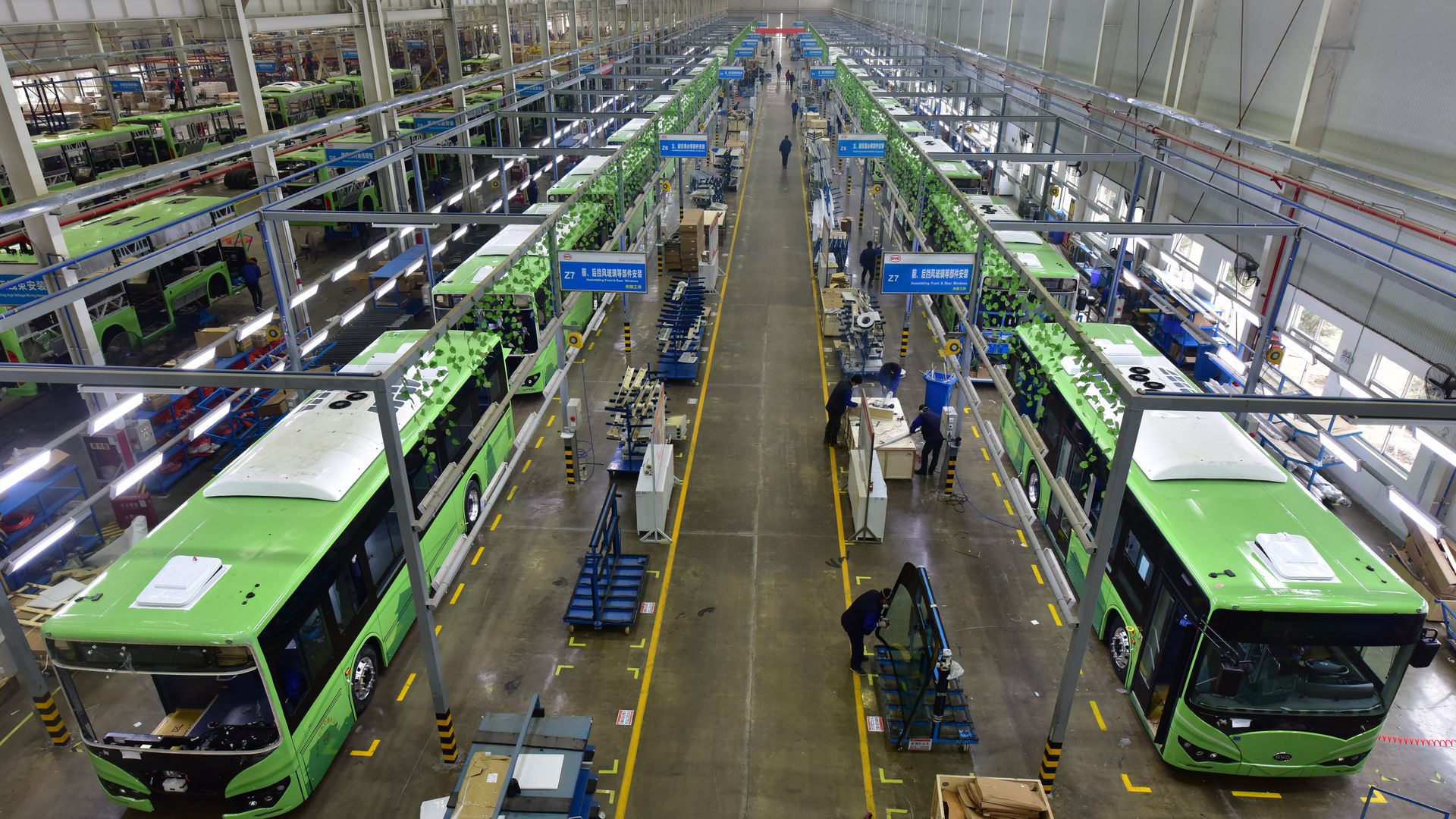The big picture: How electric buses could change the world

BYD bus manufacturing facility in Shaanxi Province, China. Photo: Visual China Group via Getty Images
Electric buses are set to command the bus market worldwide by the late 2020s — and, in 2040, they could make up 80% of the global municipal bus fleet, according to Bloomberg New Energy Finance (BNEF).
Why it matters: While personal electric vehicle penetration has grown more slowly than many advocates hoped, buses are a more practical means of achieving greater levels of implementation across the world. According to BNEF, nearly all electric buses will have a lower cost of ownership than conventional buses by next year.
BYD is the world's largest electrical vehicle manufacturer, and Bobby Hill, the company's VP of North American sales, spoke to Axios about their growth.
The big picture: China has invested more in electric buses than any other nation, accounting for 99% of global e-bus purchases in 2017. According to Hill, China was just the right place for the technology to take off. "The air quality has been bad for years," he said, "and the government and cities found that it could be rapidly improved if they removed emissions from the largest vehicles on the road." In Shenzhen, China, where BYD is based, 100% of public buses are electric, the first city to attain that goal.
Yes, but: The LA Times published an exposé in May detailing poor performance by BYD buses operating in the Los Angeles metro area. BYD has disputed nearly all of the claims, but the article has slowed implementation in other cities. Indianapolis reconsidered electric bus deployment, and natural gas vehicle makers have seized the opportunity to criticize the technology. Hill admitted that there have been problems with buses, but argued that's natural for a new technology, adding that BYD's batteries are covered by a 12-year warranty and faulty buses are serviced and improved.
- Despite the speed bumps in the U.S. market, BYD expects they and other electric manufacturers will benefit from money that will be made available from the VW settlement fund, much of which is earmarked for low or no-emission vehicles. According to Hill, "Everyone building electric buses is going to get very busy."
What's next: By 2040, Bloomberg projects that electric vehicles and buses will increase the global electricity demand by 6%. That's why Hill says they're investing so heavily in energy storage for renewables and working to charge strategically in order to mitigate demand charges. But that kind of demand increase on a global scale will require a great deal more electricity suppliers to come online in the coming years.
Go deeper:
